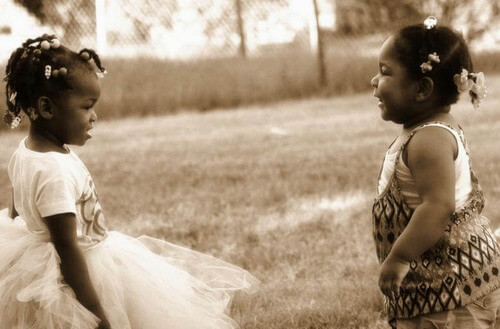Social Milestones for Toddlers: What to Expect and How to Support Your Child
Toddlers are little explorers, constantly learning and growing in ways that shape their future interactions with the world. An exciting aspect to this growth are the social milestones for toddlers.
Once you understand these milestones it will help you to know what to expect and how to support your toddlers in becoming a confident, kind and social individual.

What Are Social Milestones for Toddlers?
Social milestones for toddlers is an indication of their abilities to interact with others. This may include things like making eye contact, playing and sharing with peers and showing empathy.
While every child develops at their own pace, these benchmarks give parents a general idea of what to expect during the toddler years.
Why Are Social Milestones Important?
Toddlers who learn how to express themselves, understand others, and navigate social situations will likely have an easier time making friends and adjusting to new environments as they grow.
Social Milestones by Age
Below are some common social milestones for toddlers, broken down by age range.
12-18 Months: Early Social Interactions
At this stage, toddlers are just beginning to explore the concept of relationships beyond their caregivers.
- Recognizing Familiar Faces: They show excitement when they see familiar people and may become shy or anxious around strangers.
- Responding to Their Name: Your toddler will likely turn their head or look up when called.
- Showing Affection: They may start hugging, cuddling, or reaching out for comfort when upset.
- Imitating Actions: Copying simple gestures like waving, clapping, or blowing kisses is a big step toward understanding social cues.
18-24 Months: Becoming More Interactive
As their language and mobility improve, toddlers become more interested in engaging with others.
- Playing Alongside Other Children: Also known as parallel play, toddlers will play near other kids without necessarily interacting with them.
- Demonstrating Independence: They start asserting their wants, which may sometimes lead to frustration or tantrums.

- Expressing Emotions: Your child may show happiness, frustration, or excitement more clearly.
- Following Simple Directions: They can respond to basic requests, such as “Come here” or “Give me the toy.”
24-36 Months: Engaging in Social Play
By the time your child reaches two to three years old, their social skills will become more complex.
- Playing With Other Children: They begin engaging in more cooperative play, learning how to take turns and share (though this may still be challenging!).
- Using Words to Communicate Needs: Instead of crying or grabbing, they start using simple sentences like “My turn!” or “Help me.”
- Showing Empathy: You might notice them offering a hug to a sad friend or handing a toy to someone who dropped theirs.
- Understanding Routines and Rules: They begin to grasp the concept of waiting their turn and following simple group activities.
How to Support Your Toddler’s Social Development
You play an important role in helping your child reach their social milestones. Here’s how:
1. Encourage Playtime With Peers
Set up playdates or attend toddler-friendly activities where your child can interact with others.
Even if they are only playing side by side instead of with each other in the beginning, the exposure to other children is what will help.
2. Model Positive Behavior
Toddlers learn by watching you. Show kindness, patience, and cooperation in your daily interactions. Saying “please” and “thank you,” taking turns, and apologizing when necessary teaches them by example.
3. Teach Emotion Recognition
Help your child understand their emotions and those of others. Label emotions when you see them: “You look happy!” or “I see you’re frustrated. Let’s take a deep breath together.”
Books and picture cards with different facial expressions can also help with this.
4. Encourage Sharing and Taking Turns
Toddlers naturally struggle with sharing, but you can guide them by creating positive experiences. Use phrases like, “It’s your turn now, and then it will be Jake’s turn.”
Praise them when they share, reinforcing good behavior.

5. Give Simple Social Instructions
Teach your toddler small social skills, like saying “hi” and “bye,” making eye contact, or responding to their name. These small steps can boost their confidence in social situations.
6. Be Patient With Tantrums and Frustration
Toddlers often struggle with big emotions. Instead of punishing tantrums, help them learn how to express themselves. Encourage deep breaths, offer comfort, and help them find words for their feelings.
7. Read Books About Friendship and Emotions
There are many great children’s books that teach social skills, like How Do Dinosaurs Play with Their Friends? or Llama Llama Time to Share.
Reading these together can open up discussions about kindness and cooperation.
When to Be Concerned
While all toddlers develop at their own pace, some delays in social milestones may indicate a need for extra support.
Consider speaking with a pediatrician if your child:
- Avoids eye contact consistently
- Doesn’t respond to their name by 12-15 months
- Shows little interest in interacting with caregivers or other children
- Has difficulty understanding or expressing emotions beyond age-appropriate frustration
- Doesn’t engage in pretend play by 3 years old
Early intervention can be helpful in supporting social development, so trust your instincts if something feels off.
Watching your toddler grow and reach new social milestones for toddlers is an exciting journey.


















New! Comments
Have your say about what you just read! Leave me a comment in the box below.